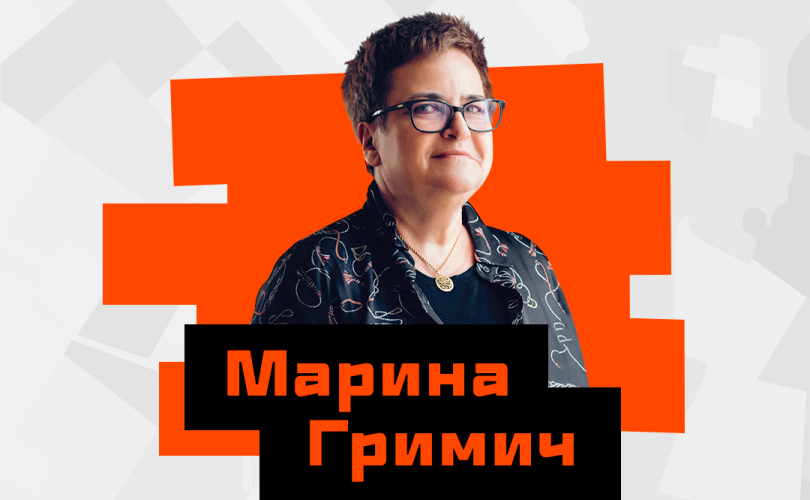Is War a Delusion?
Prior to February 24, 2022, I had been immersed in my professional bubble as a writer and anthropologist. I was somewhat convinced that a full-scale war breaking out in my own country was impossible to fathom after reading Steven Pinker’s famous book, The Better Angels of Our Nature, chronicling the decrease in violence throughout human history.
After February 24, I suddenly realized that everything I had read so far on the topic of war either doesn’t hold up or has a radically different meaning.
For example, ancient Greek mythology portrays the god of war, Ares, as married to Aphrodite, the goddess of beauty and love. From their union, the god of love, Eros, was born, along with Anteros, the god of love reciprocity (albeit with a somewhat vindictive nature), and Paphos, the god of love-longing. It is clear that these sons inherited their mother’s traits. In contrast, Phobos and Deimos inherited their father’s traits, namely fear and terror. Everything seems logical.
Suddenly, a new revelation: Harmony! Aphrodite and Ares have another daughter named Harmony! I used to perceive this as a display of Hellenic wit, but after February 24 of last year, everything changed for me. What is harmony? War represents violence against love.
The second example is from the Middle East, where different wisdom prevails. „War is deceit,“ said the Prophet Mohammed. This expression encompasses military strategies, as well as treachery, betrayal, and deception, all of which accompany war.
I used to believe that „war = deception“ was a thing of the past, or at least that it only applied to the Middle East. It was possible there, but not here. We have international law and several worthy international organizations that resolve all misunderstandings and conflicts diplomatically and civilly!
After February 24, I began to question the efficacy of international law and wondered where it was when we needed it.
Example three. As an anthropologist, I had previously believed that war could be understood in terms of the evolution of violence. However, the past year’s events have caused me to rethink this perspective. The term „evolution“ implies progress from a lower stage of civilization to a higher one, and in the case of war, from uncivilized to civilized. But in reality, nothing has truly evolved. We are still stuck at the level of primitive instincts and behavior patterns, with a focus on trophies, rape, torture of prisoners, and a disregard for human life. While warfare technology may have advanced, human behavior remains rooted in primitive violence.
Example four. Let’s consider our own native Ukrainian folklore. From today’s perspective, it’s striking how primitive and absurd the Romantic era’s interpretations of war appear. After February 24, „viynonʹka,” a diminutive form of the word for war in Ukrainian, sounds almost mocking. The heroic stories of Cossacks catching bullets with their bare hands, glorified in Soviet and other folklore collections, seem inappropriate and somewhat sacrilegious.
Example five…
I need to stop momentarily because some things are too difficult to accept. Our epic tells a tale about the Samara brothers: „Near the Samarka River, at the Saltanka well, all the fields of Samara were burned by fires there. Only two small thickets and two green ravines did not burn. Because there, next to them, lay three little brothers. They were shot, hacked, dying from mortal wounds.“ How many more unburied bodies of our soldiers will be scattered across our insatiable Donetsk steppes?
These are the words of my friend, the mother of Illya Chernilevskyi, a poet, musician, and screenwriter who lost his life near Avdiyivka, and she posted this on her Facebook page:
„My dear friends, you ask when you can say goodbye to my son Illya. The bitter truth is that his body is still lying in the trenches where he was killed. I spend my days making numerous phone calls, trying to find out when his body will be evacuated. They assure me that the area is still uncontrolled, battles are ongoing, and nobody can take his body away. The last thing I can do for my son is to organize an evacuation, conduct a DNA test, transport his body to Kyiv, and finally bury him. Only then can we say goodbye to our boy. I no longer know God,“ said Olha Chernilevska.
I no longer trust beautiful intellectual theories, do not believe in the power of international law, and do not consider ancient wisdom clever. I have grown disillusioned with the exercises of Ukrainian romantics on the subject of war, and I cannot bring myself to read about foreign conflicts. However, I desperately wish that everything could be different.
Translated by Yulia Lyubka and Kate Tsurkan











